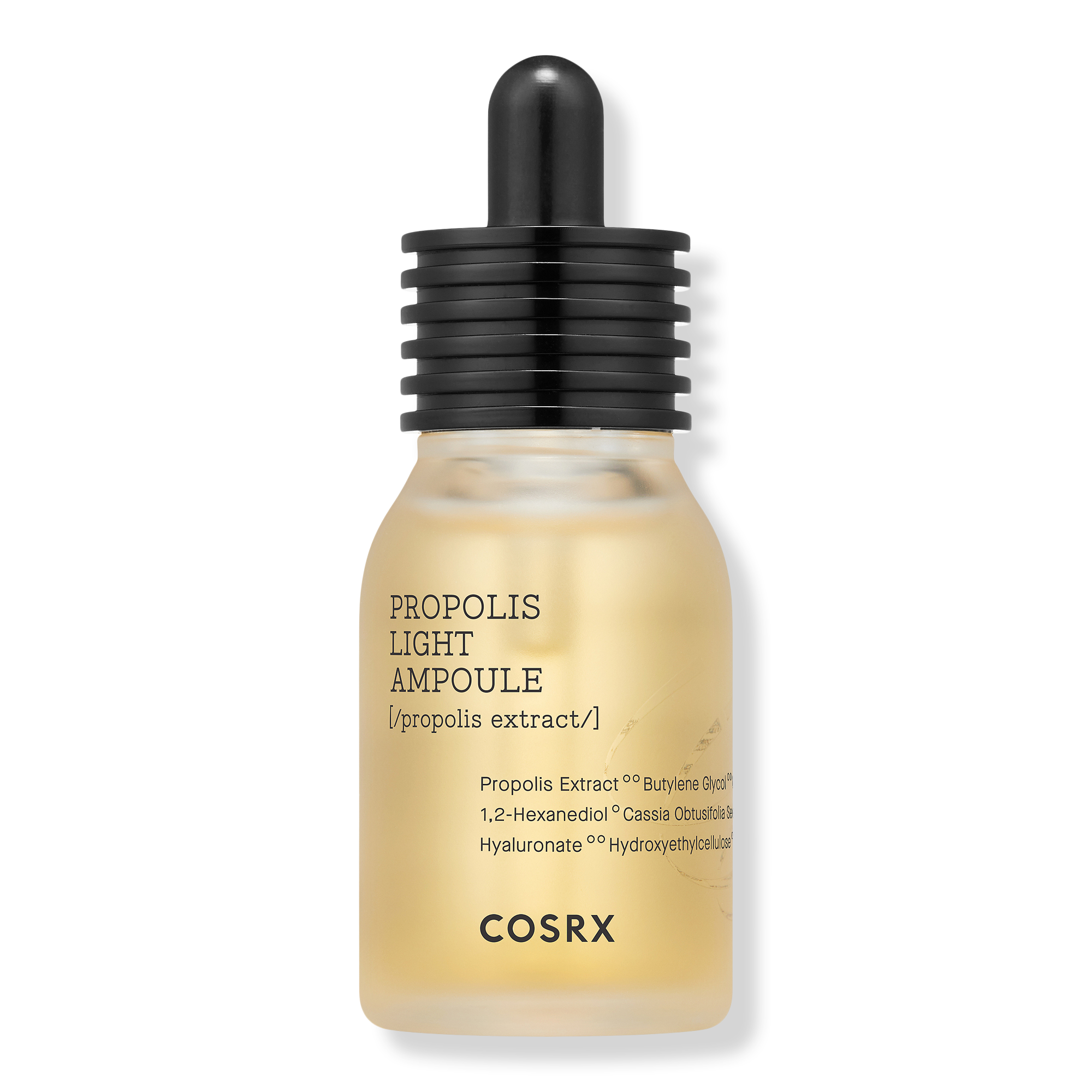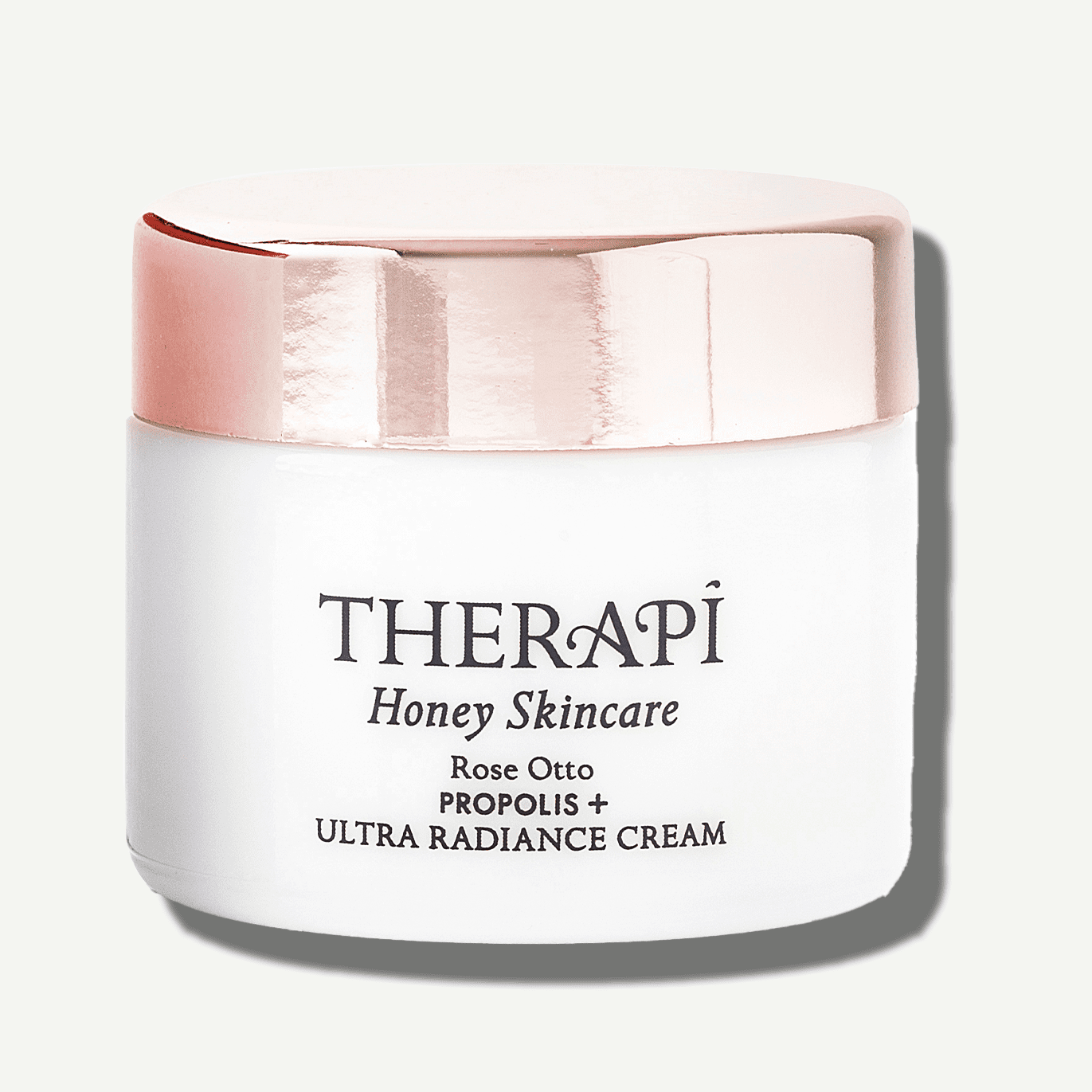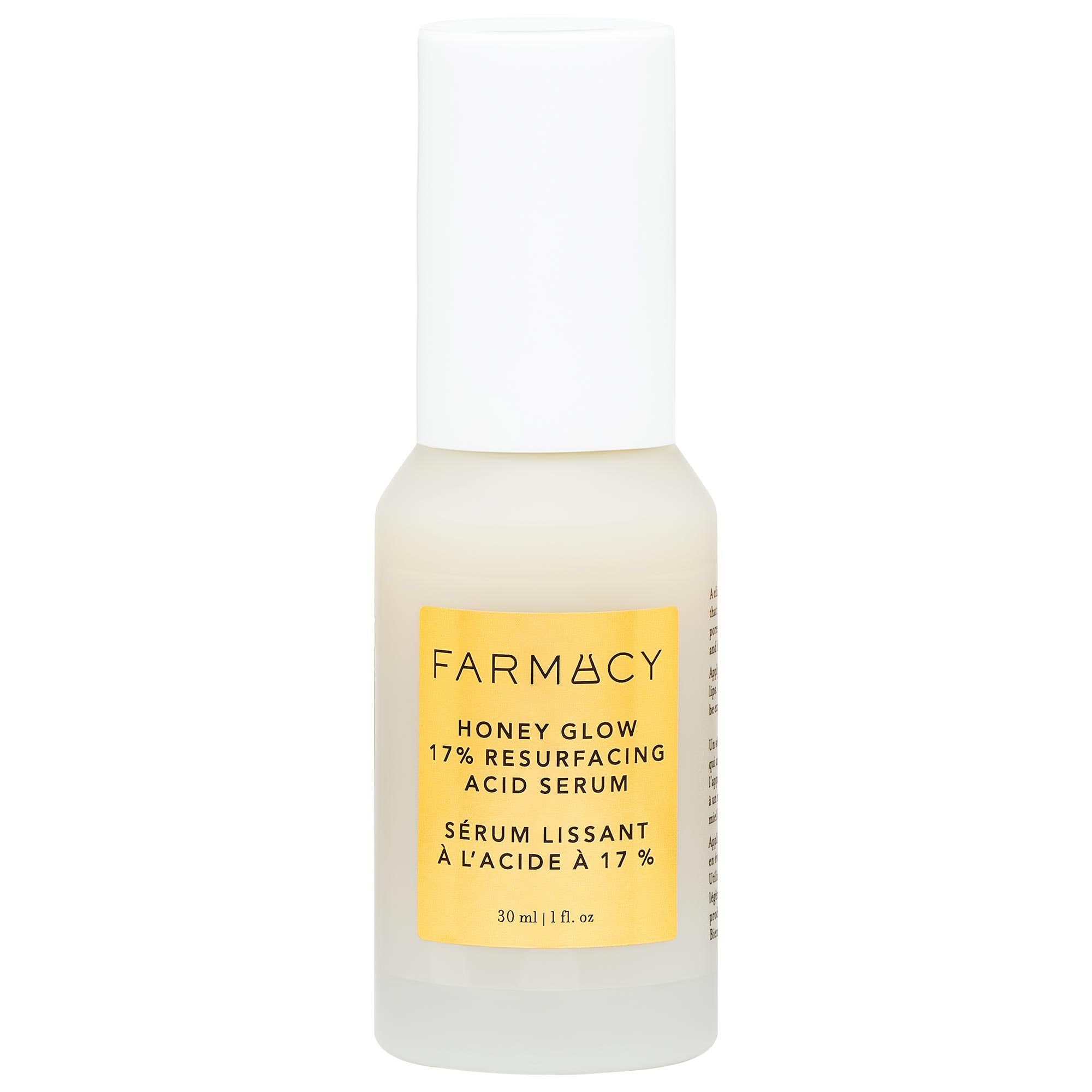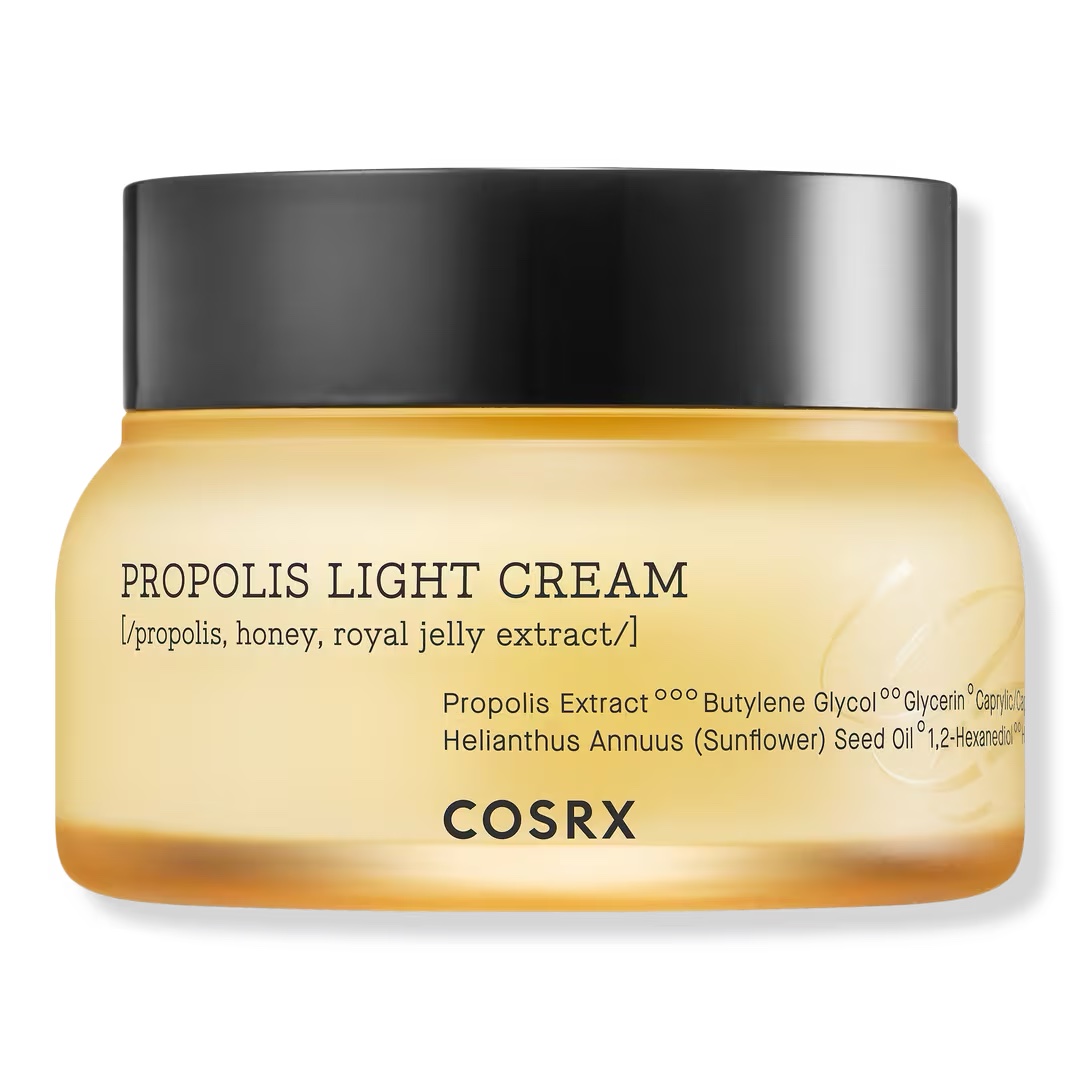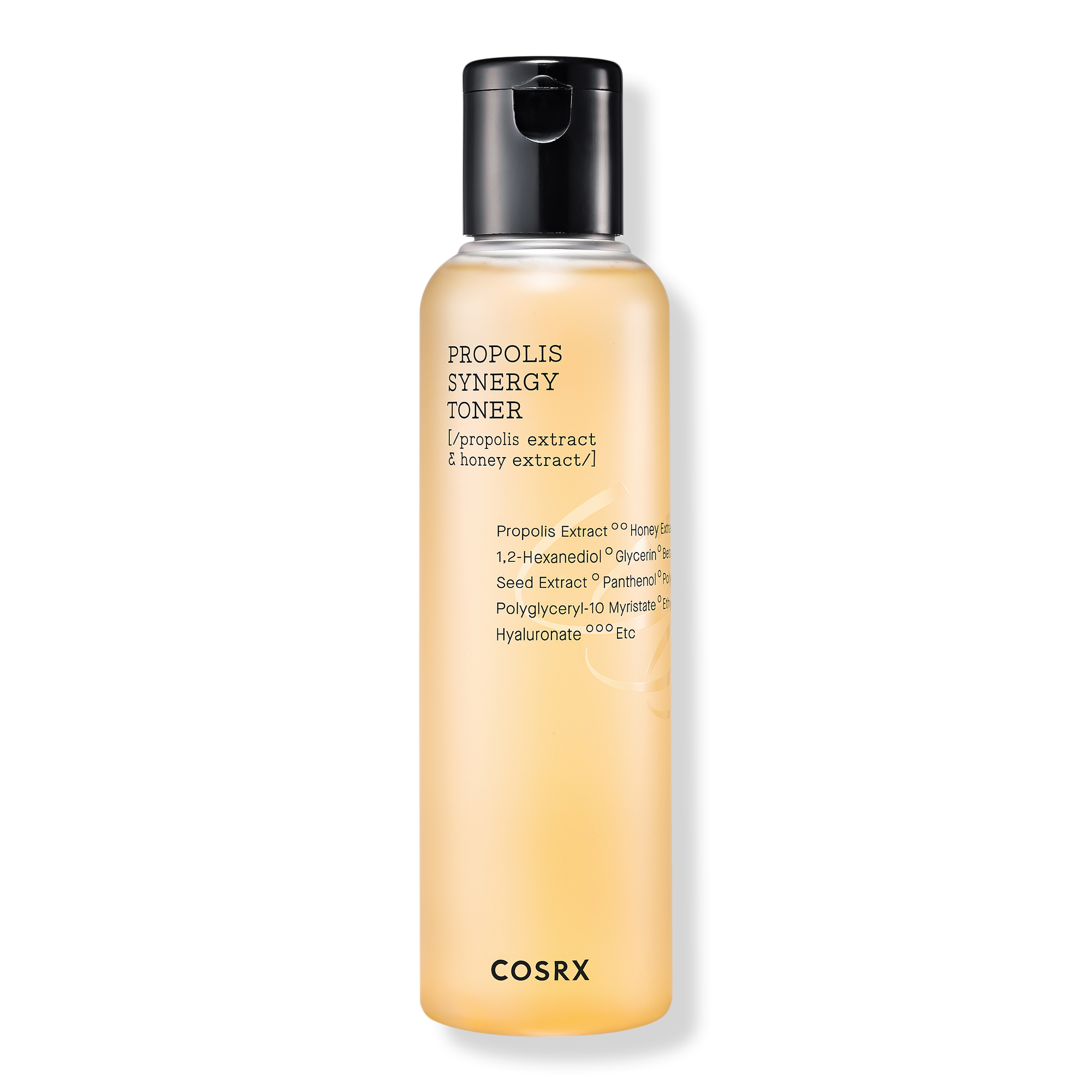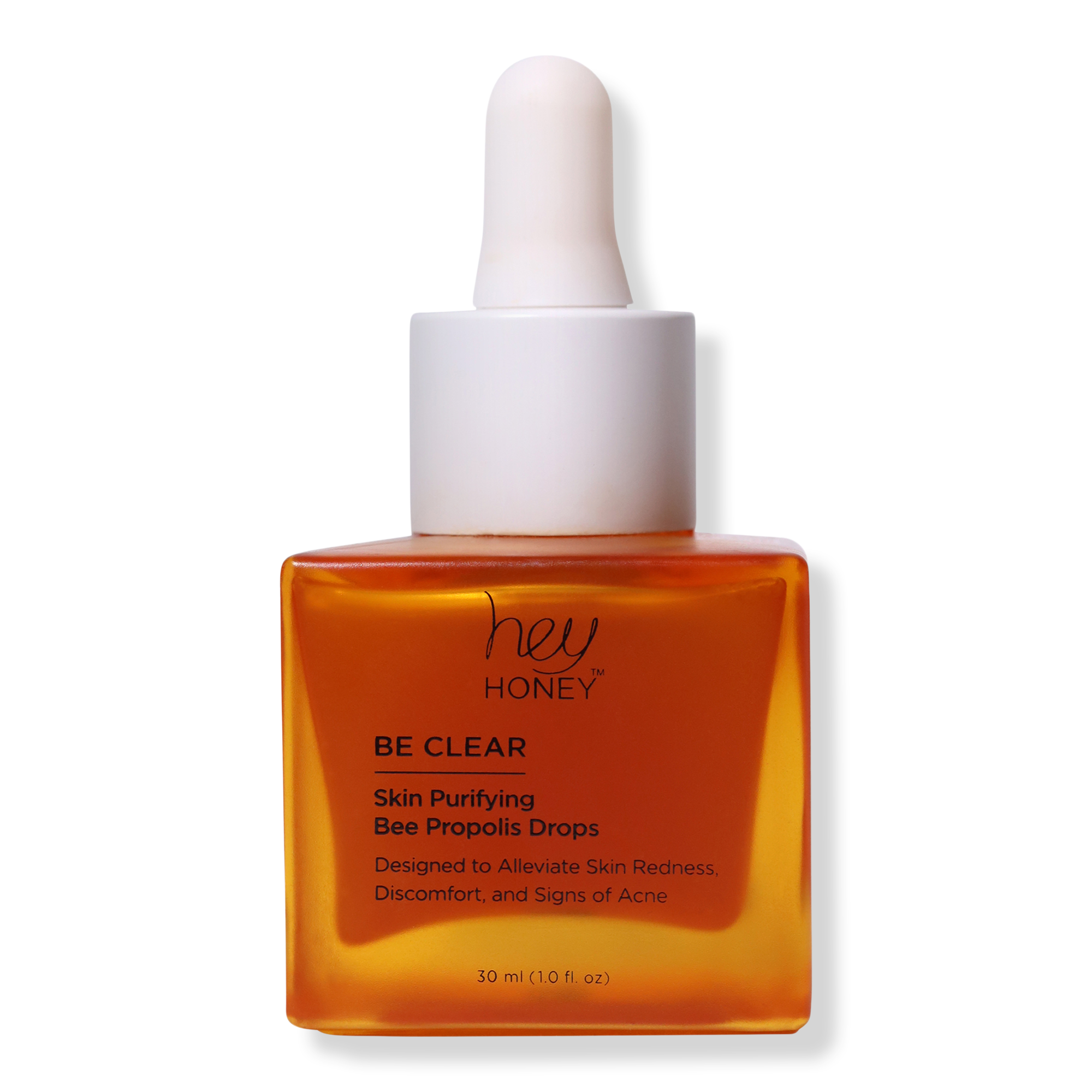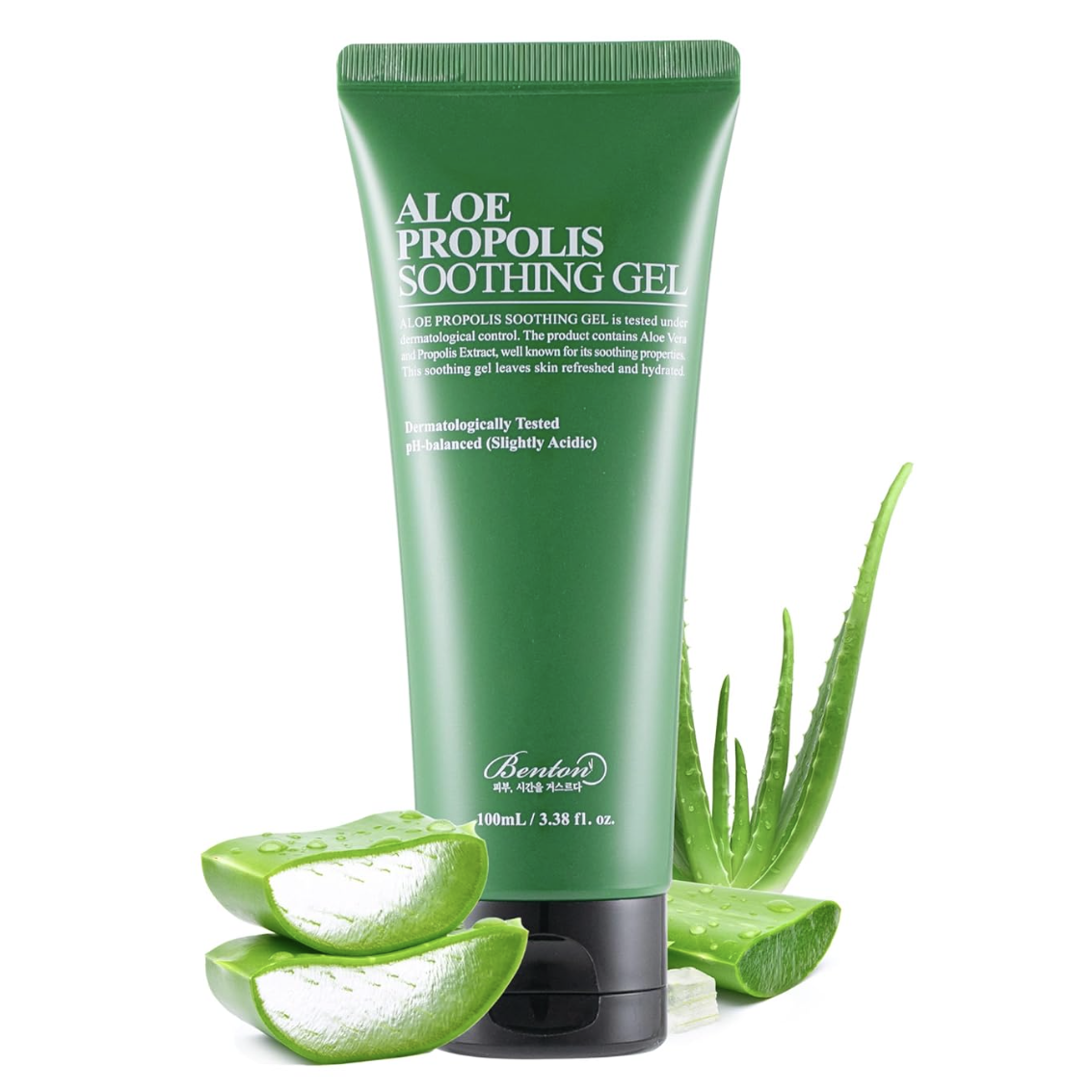Propolis Is the Trending Anti-Inflammatory Skincare Ingredient TikTok Can't Stop Talking About

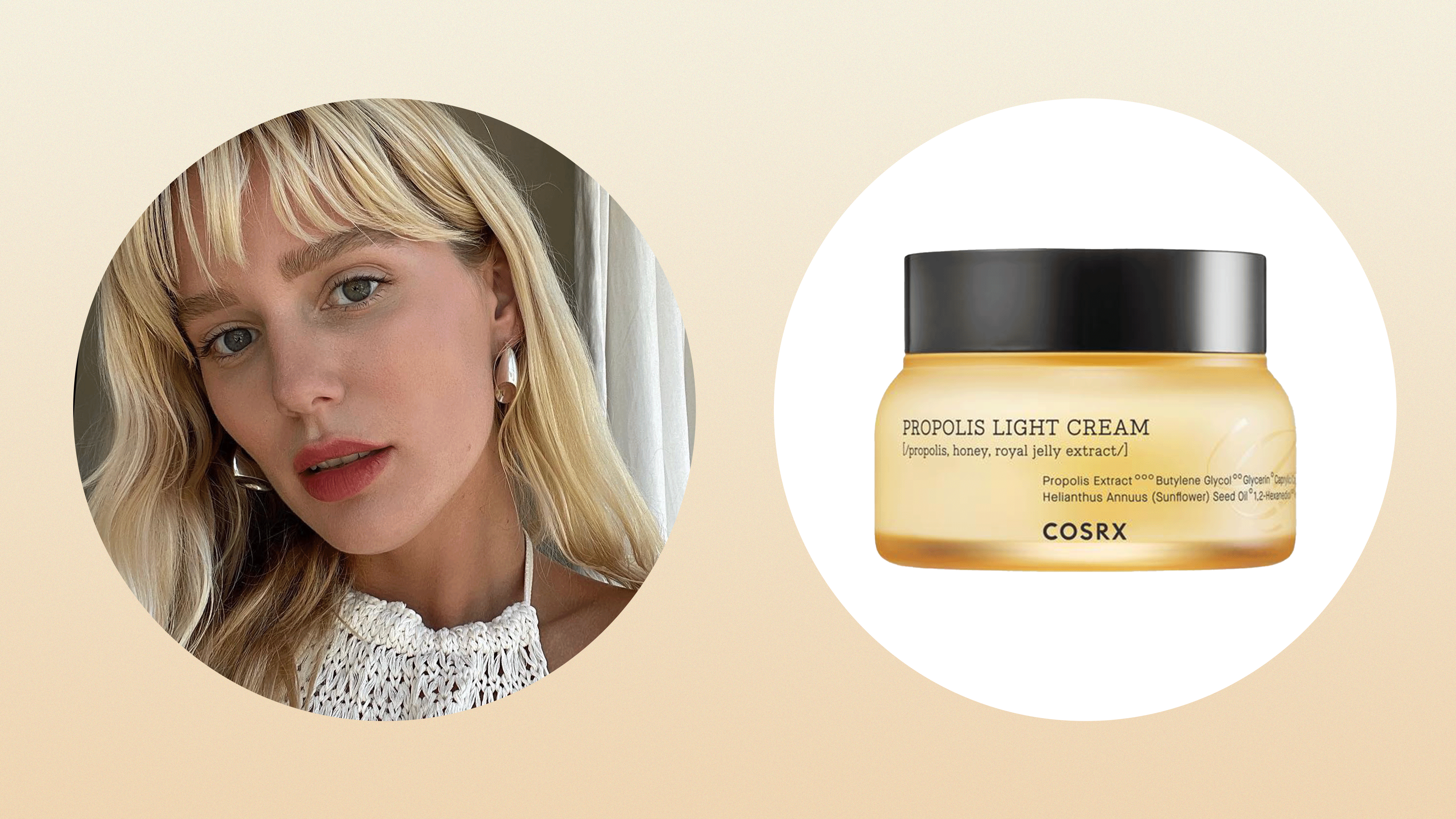
Say what you want about social media, but it has its benefits. As a beauty editor, I like that it facilitates the spread of information about skincare, makeup, and hair trends. Whether it's an internet-famous blush or a strangely shaped body tool that improves lymphatic drainage, I'm constantly collecting recommendations from the people of the internet.
It's not just product recommendations, though. It's also individual ingredient recommendations. Recently, popularity has been piqued around ingredients like algae, ectoin, and exosomes. While interest in those areas is still going strong, there's another ingredient that's leading to a lot of chitchat—propolis.
Like honey, this ingredient is derived from bees. Unlike honey, it's a conglomeration of natural substances that offer anti-inflammatory, antimicrobial, and antifungal properties. Oh, and it's been used for centuries, even by Cleopatra. Be still, my beating, beauty-loving heart! Keep scrolling to learn why experts love this ancient yet trendy ingredient and recommend it for all skin types.

What is propolis?
Omer Ibrahim, MD, FAAD, is a board-certified dermatologist at Chicago Cosmetic Surgery and Dermatology. "Propolis, sometimes called bee glue, is a bee-based byproduct that's a mixture of tree sap, beeswax, and bee saliva used by bees to maintain and protect their hives." Not only is it a physical barrier against the elements, but it also protects against microbes. "It's composed of resin, wax, pollen, flavonoids from plants, and has antimicrobial, antifungal, and anti-inflammatory properties," he adds.
Rana Jaffari is a registered nurse specializing in aesthetic nursing at Dripology. She says bees use and produce propolis to protect their hives. In fact, she calls it a "hive sealant." This protective quality translates to its use in skincare (more on that in a minute). "While honey and royal jelly are also bee products, they differ from propolis in composition and purpose," she says. "Honey is a substance bees produce from flower nectar primarily used as food. Royal jelly is a secretion from glands in the heads of worker bees used to feed larvae and queen bees."
How does propolis benefit the skin?
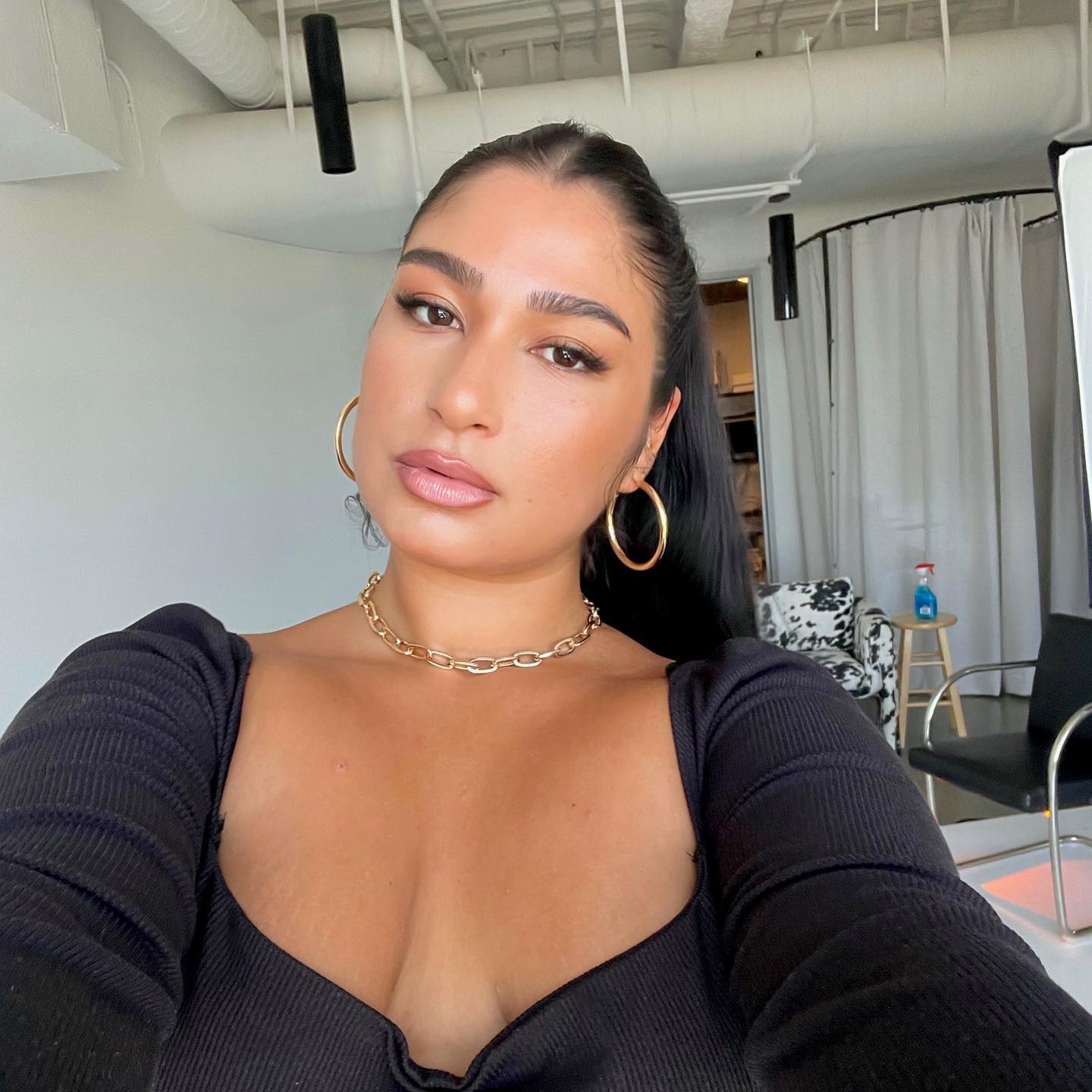
Make no mistake—this is a true multitasking skincare ingredient. Take it from Jaffari, who says propolis offers antioxidant, antimicrobial, antifungal, and skin-soothing benefits. "Propolis can benefit the skin in various ways. It has antioxidant properties, which can help protect the skin from environmental stressors like pollution and UV radiation. In addition to its antioxidant properties, it has antimicrobial properties, which can help combat bacteria and fungi on the skin's surface. Lastly, propolis has soothing and healing properties, making it beneficial for calming irritated or inflamed skin," she says.
That explains why it's been used since ancient times to remedy certain skin conditions. "Propolis and other bee-derived substances have been used for centuries, even as far as the days of Cleopatra, for wound healing," Ibrahim says. "There are many studies showing its effectiveness. It's shown to have regenerative, reparative, and anti-inflammatory effects to accelerate wound healing."
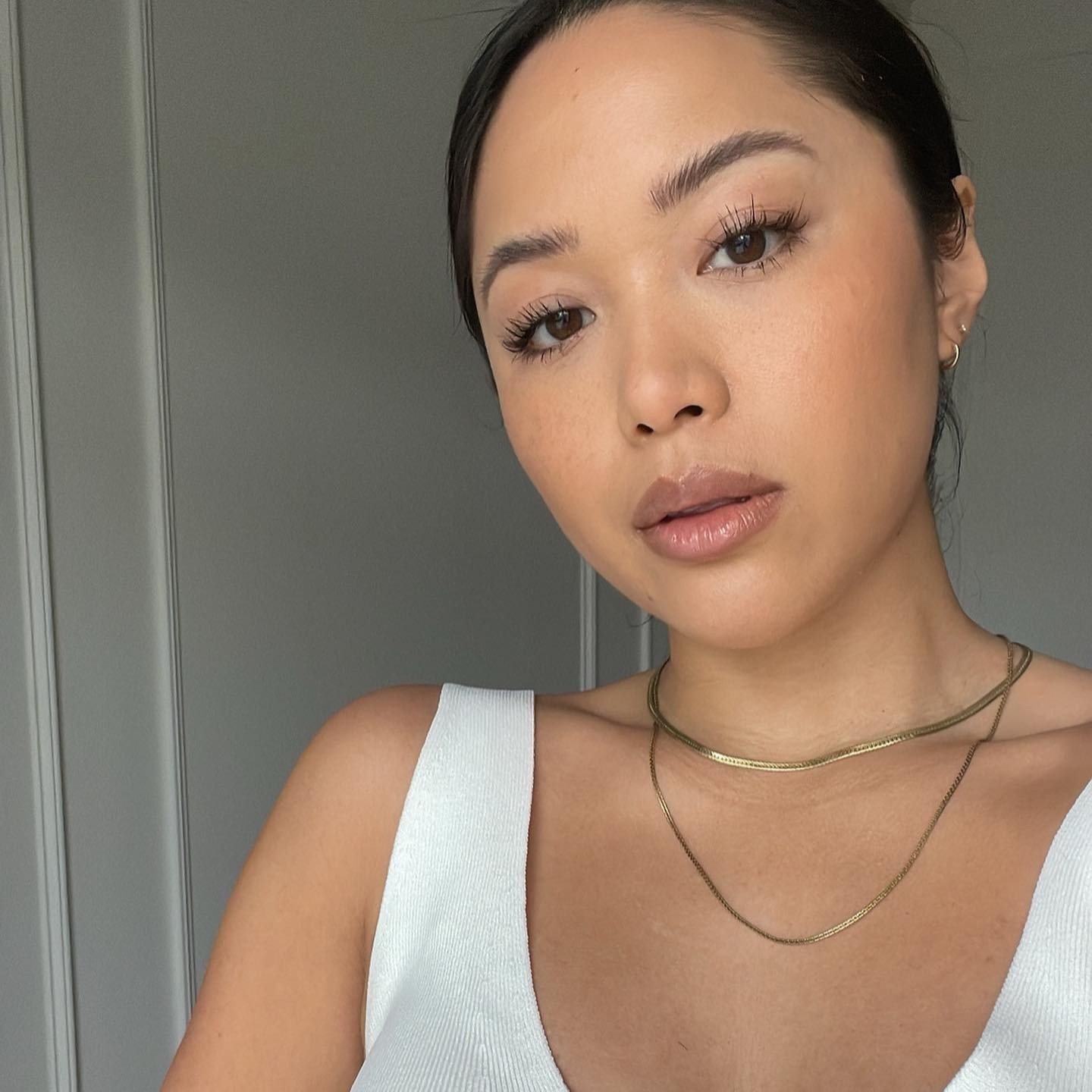
Due to its anti-inflammatory, antimicrobial, and skin-soothing benefits, both experts say propolis works well for acne-prone skin. "In my opinion, Propolis's anti-inflammatory and antibacterial properties make it a good ingredient to add to an acne-prone skincare routine," Jaffari says. "Propolis can help reduce inflammation and redness associated with acne while also targeting the bacteria that contribute to breakouts simultaneously. Most of my acne-prone skin clients who add propolis to their skincare routine report an improvement in their skin."
"There are studies also showing that it helps reduce C. acnes on the skin and can be helpful as part of an anti-acne skincare routine, particularly to help reduce inflammation of acne and speed up the skin healing process," Ibrahim confirms. However, he doesn't recommend using pure propolis. Instead, he recommends using it in a well-formulated skincare product. He explains, "Propolis can be an effective anti-acne ingredient when paired with other anti-acne ingredients, particularly in the latter part of the acne cycle to heal the skin. It's not effective as a stand-alone ingredient for acne."
Are there any downsides or drawbacks to using propolis in skincare?

Due to its skin-soothing properties, both experts agree that propolis is good for all skin types, even sensitive skin. They do, however, caution against diving in headfirst. Perform a patch test instead. "As a bee byproduct, there is a risk for allergic reactions for those who are allergic to bees," Ibrahim says. "If there are no allergic reactions, all skin can potentially benefit from propolis."
Jaffari seconds that, adding that the frequency with which it should be used depends on the concentration as well as other active ingredients in a propolis skincare product. "You can use propolis products once or twice a day, depending on your skin's needs and reaction to the product. If you experience any irritation or discomfort, reduce the frequency of use," she says.
Just be warned: This is an ingredient formed with sap and wax, so it's incredibly sticky in its pure form, and that stickiness might not go away when it's formulated into a product. Jaffari adds, "Some individuals may find the texture of propolis products sticky or uncomfortable on their skin." I don't know about you, but with such a long list of skin benefits, I'm willing to put up with some subtle texture.
Shop the Best Propolis Skincare Products

Kaitlyn McLintock is a Beauty Editor at Who What Wear. She has 10 years of experience in the editorial industry, having previously written for other industry-leading publications, like Byrdie, InStyle, The Zoe Report, Bustle, and others. She covers all things beauty and wellness-related, but she has a special passion for creating skincare content (whether that's writing about an innovative in-office treatment, researching the benefits of a certain ingredient, or testing the latest and greatest at-home skin device). Having lived in Los Angeles, California, and Austin, Texas, she has since relocated back to her home state, Michigan. When she's not writing, researching, or testing beauty products, she's working through an ever-growing book collection or swimming in the Great Lakes.
